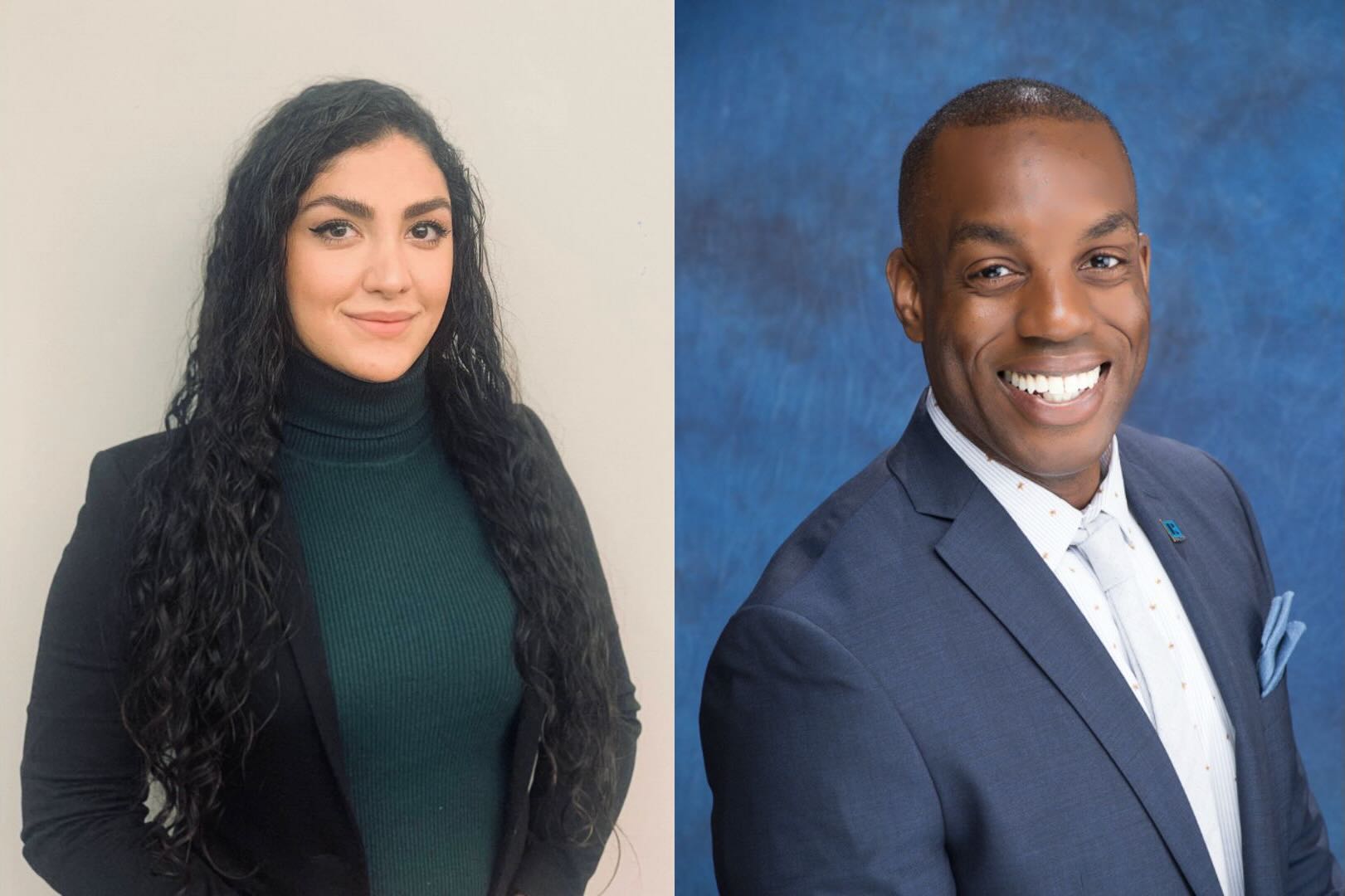From Classroom to Courtroom: Law Students Shine as Judicial Externs

UC Law SF students Sheila Zerang ’24 and Phillip Agee ’24 discussed active cases with judges and wrote draft court opinions in their work as judicial externs.
Just a few steps from UC Law SF’s campus, Sheila Zerang ‘24 closely observed live courtroom arguments before sitting down to write the first draft of what may become a published California appellate court decision.
How did a third-year law student accomplish this feat? Through the law school’s Judicial Externship Program, which dispatches dozens of law students each year to work with judges in state and federal courthouses, most of them only a short walk from UC Law’s centrally located campus in the heart of San Francisco.
“This externship deepened my understanding of appellate procedures, refined my legal research and writing skills, and offered a real-world perspective on the judicial decision-making process,” Zerang said.
Before placing law students as externs with judges, Professor Sandy Flagge-Phillips ’15 first runs them through a “boot camp” covering legal research, civil procedure, and writing for the court. Students also review the do’s and don’ts of judicial ethics and etiquette before spelling out their professional goals for the externship experience. Flagge-Phillips then works directly with these students to measure their progress throughout the semester.
After having benefitted from the boot-camp training in fall 2023, Zerang worked with Justice Danny Chou of California’s First District Court of Appeal and learned about the inner workings of the judicial system. She also connected with other experienced judges and justices, who offered practical advice and valuable insights on the law.
“I am grateful not only for the mentorship and guidance that I received during this externship, but also for the enduring professional connections I had the opportunity to build along the way,” she said.
Flagge-Phillips, a UC Law SF alumna who served as a summer judicial extern in law school, said these real-world experiences make the law “really click in students’ heads,” going beyond what one typically learns in a classroom lecture or textbook.
“When they are put in a real-life setting, everything they learn in class starts to make sense,” she said. “It builds a law student’s confidence, where they start to think less like law students and more like practicing attorneys.”
Flagge-Phillips previously worked as a Lawyers for America fellow with Contra Costa County Superior Court and as lead staff attorney for San Francisco County Superior Court. She now works for the Center for Judicial Education and Resources, which provides training and education for new and experienced California judges.
Professor Nira Geevargis, who directs UC Law’s Externship Programs, said the law school is lucky to have a seasoned expert and alum like Flagge-Phillips who cares deeply about students getting the most out of their externships.
“With her vast experience and dedication to students, it makes these externships even more special,” Geevargis said. “We are also grateful to the judges, clerks, staff attorneys, and court staff who really care about mentoring our students.”
Another recent judicial extern, Phillip Agee ‘24, spent the fall of 2023 working with U.S. District Judge Susan Illston of the Northern District of California. His duties included researching complex civil and criminal law issues, analyzing cases, and discussing his work with the judge and law clerks. He said he learned how to condense complicated analyses into concise pieces of writing, sometimes turning 15-page memos into two-page orders eventually approved and signed by the judge.
“A judicial externship is a rare opportunity to participate in the judicial process behind the scenes, and it makes you feel like your input really matters,” he said.
Law student Rachel Cranna ‘24 worked for U.S. Ninth Circuit Judge Marsha Berzon during her externship this past fall. She said she learned a lot about administrative law and saw her writing and legal reasoning improve dramatically throughout the semester.
“Most of us will engage with the courts in one way or another, and viewing a dispute from the judicial side greatly enhances your ability to successfully argue a case,” she said. “I know my experiences externing can help me in any field I choose to pursue.”